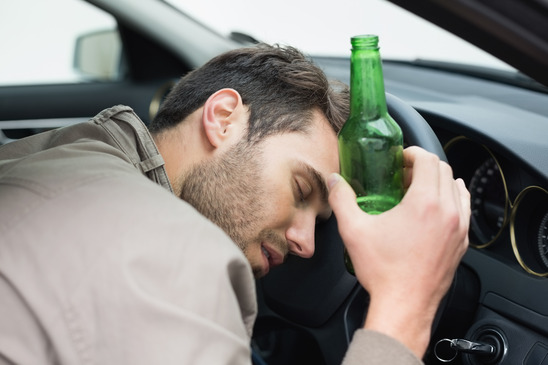6 Drunk Driving Facts You Need to Know
Knowing the facts about drinking and driving can mean the difference between spending your work bonus on a family vacation, or handing it to a drunk driving lawyer.
Driving is a privilege, not a right, whether you’re navigating Toronto’s frenetic downtown traffic to get to work or cruising down open country back-roads for pleasure. If you drive in Ontario, you need to understand the rules and regulations associated with drinking and driving. Read on to learn 10 fundamental facts from an experienced drunk driving lawyer.
Different laws apply to different drivers.
Drinking and driving laws differ slightly depending on the status of your driver’s licence. Novice or G1 drivers cannot have any alcohol in their system regardless of their age. On the other hand, fully licensed G2 drivers can, so long as they don’t violate the “over 80” rule or have enough to impair their ability to operate a motor vehicle. Please note that a person’s ability may be impaired even if they are well below the “over 80” rule.
You don’t have to be driving to be arrested for drunk driving.
It sounds counterintuitive but it’s true: your vehicle doesn’t need to be moving to be charged with impaired driving. If you’re found drunk behind the wheel of a vehicle – even a stationary one with the keys nowhere near the ignition – you can still be charged and convicted of having care or control of a motor vehicle while your ability is impaired or while your blood-alcohol concentration is “over 80” mg of alcohol per 100 ml of blood. Ask your drunk driving lawyer more about this common pitfall.
Impaired driving isn’t all about drinking.
We may be remiss referring to your impaired driving lawyer as a drunk driving lawyer, since that only tells one part of the story. It is illegal in Canada to drive or have care or control of a motor vehicle while your ability is impaired by alcohol, a drug (including marijuana), or both!
Breathalyzer tests are mandatory when requested.
Some people have asserted that you can get around a roadside test by refusing to provide a breath sample. That’s incorrect. If you’re asked to provide a breath sample, you must comply. You can be charged with Refusal or Failure to provide a breath sample which carries the same penalties are driving while your ability is impaired by alcohol or a drug or both.
Drinking and driving charges stick with you for a minimum of 10 years.
As you know, drunk driving is a serious offence, and the current legislation reflects that. A conviction for drunk driving will result in you having a criminal record. Convicted drunk drivers often have to take alcohol education or have an ignition interlock device installed on their vehicle, and information about the conviction will stay on their license for ever.
Drinking and driving consequences worsen with each offense.
Drinking and driving is always serious, but the consequences actually get worse with consecutive offences. A conviction for a first offence will usually result in a substantial fine but jail sentences are mandatory for each subsequent conviction. Your drunk driving lawyer can explain the penalty progression in full.
If you have an Ontario driver’s license, understand that it’s a privilege, not a right! Mind these 6 drunk driving facts to protect your license, your vehicle, and the health of everyone on the road.
If you’re currently facing drunk driving allegations and are seeking an impaired driving lawyer, John Erickson can help. You can learn more about his record and services as a drunk driving lawyer in Toronto by visiting https://ericksonlaw.ca/impaired-driving-charges/ or calling (416)-363-3612.



Comments are closed.